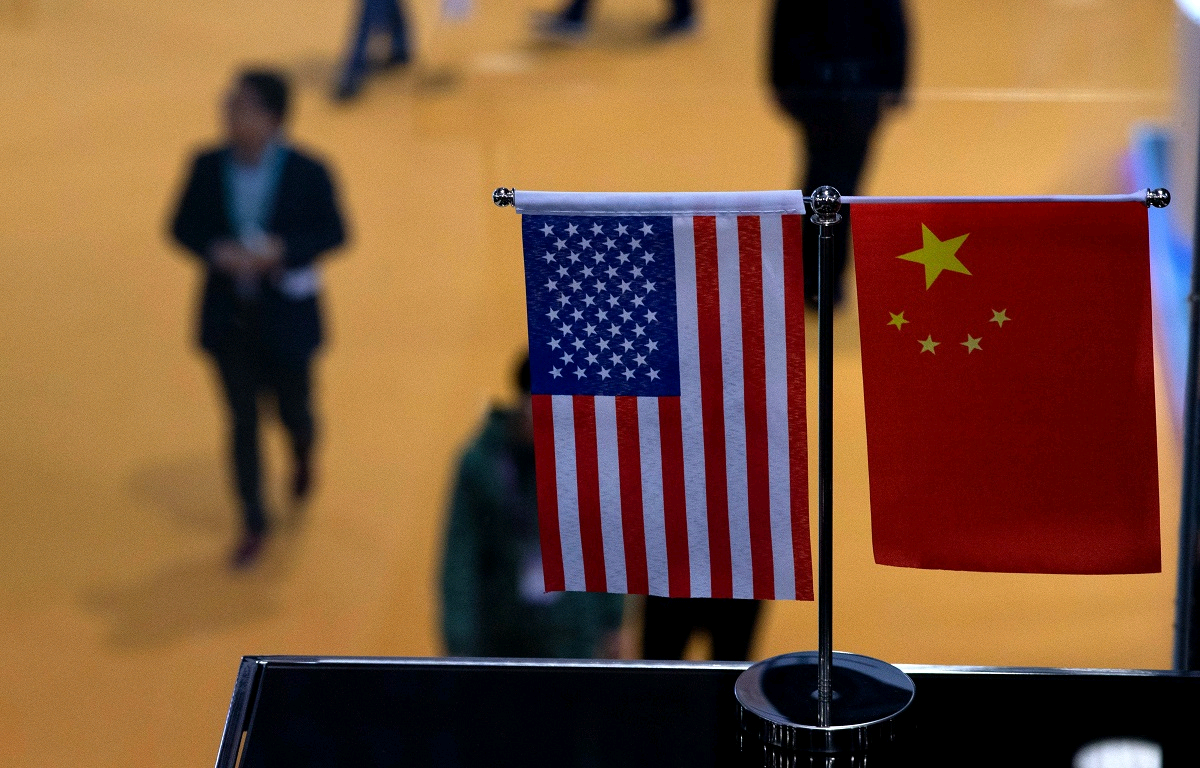The trade war between China and the US is escalating with the latter slamming an unprecedented 125 per cent tariff on its Asian rival on Wednesday.
US President Donald Trump’s latest salvo of tariffs came into effect on dozens of trading partners earlier Wednesday.
In one of the most serious tests of China-US ties in recent decades, Trump ramped up the duties he had originally prepared for Chinese goods, finally raising them to 125 per cent after Beijing retaliated against its earlier tariff.
Beijing initially planned to impose a 34 per cent tariff on imports of US products from 1601 GMT on Wednesday, but the finance ministry said it would now raise the toll to 84 per cent after Trump hiked his tariff.
“The tariff escalation against China by the United States simply piles mistakes on top of mistakes (and) severely infringes on China’s legitimate rights and interests,” the ministry said.
Washington’s moves “severely damage the multilateral rules-based trade system”, it added.
China also said it would blacklist six American artificial intelligence firms, including Shield AI and Sierra Nevada Corp.
Trump later in the day announced a 90-day pause on his sweeping tariffs. The pause will give all countries a 10 per cent baseline, except China, which will see even higher levies.
“Based on the lack of respect that China has shown to the World’s Markets, I am hereby raising the Tariff charged to China by the United States of America to 125%, effective immediately,” Trump wrote on Truth Social.
Saying that more than 75 countries had asked for negotiations over the tariffs, Trump said he “authorised a 90-day pause, and a substantially lowered Reciprocal Tariff during this period, of 10%, also effective immediately.”
Impact on global trade
The escalating trade war has wiped off trillions of dollars in market value since last week as investors and analysts fear that the trade war will spark a recession.
After some respite on Tuesday, stock markets were rattled on Wednesday.
Wall Street’s main indexes were up in early morning deals while European stock markets were down around three per cent in afternoon trading.
Tokyo’s Nikkei index closed almost four percent lower.
The dollar fell against major currencies while oil prices fell below $60 a barrel, their lowest level in four years.
Government bond yields – essentially the interest countries pay to borrow money – rose in the United States, Japan and Britain, among other countries.
The Bank of England warned of risks to “UK financial stability” from increased geopolitical tensions, including the fallout from the US tariffs.
Italy is preparing to cut its 2025 growth forecast in half, to 0.6 per cent from 1.2, a government source said, while Spain is also set to downgrade its outlook.
Trade war may lead to global recession – Economist
Dr Paul Alaje, Senior Partner, SPM Professionals, said the trade war between China and America, if not addressed, will consume everyone, stressing that it may lead to a global recession.
“At best, it will induce global inflation to be very high. If you check, the IMF and World Bank are already insinuating a possible increase.
“But beyond what they are insinuating, as a matter of next quarter, starting from July, Nigerians and the rest of Africa will start feeling the impact in high prices.
“Unfortunately, rebasing or rejigging your [Nigeria’s] inflation figures will not be enough for any economist to say that the inflation number is coming down. So, we are expecting high inflation.
He warned that if the situation persists and it affects demand, it might lead to the closure of factories not just in both countries, but also in countries that depend on them.
“Lastly, it is likely to lead to a global recession. When a global recession happens, it will affect virtually everybody. I mean the entire world.
“Instead of the world experiencing growth, we might start seeing economics posting negative growth. Already, you’ve seen what S&P 500 has posted, and it has lost over 4%.
“You have also seen what the other financial instruments in the market are doing, they started posting negative [figures]. This is not just in America, even in Asia. So, we expect this to continue because of this retaliation.
Dr Alaje advised that countries should sit down with Trump and discuss the tariffs rather than announcing counter-tariffs.
“I had warned that countries should be mindful of how they retaliate to American tariffs. What we should have done is to perhaps have a global conversation and make America a key subject matter, but going head-on like what China and Canada have done by announcing a counter-increase in tariff, will lead the world nowhere,” he said.
However, Nigeria’s Minister of Industry, Trade, and Investment, Dr. Jumoke Oduwole, said Nigeria is insulated from the full effects of global trade disruptions, as Africa accounts for only 3-5% of global trade.
“Africa is kind of insulated from the global trade because we are less than 5% like about 3% of global trade so the players that really dominate we don’t want that retaliation and then we have end up being collateral damage or the unintended consequences so that really what the issue is and that’s what’s making headline news,” Oduwole said in an interview with Arise News.
Dailytrust

